Bangladesh’s eunomia problem
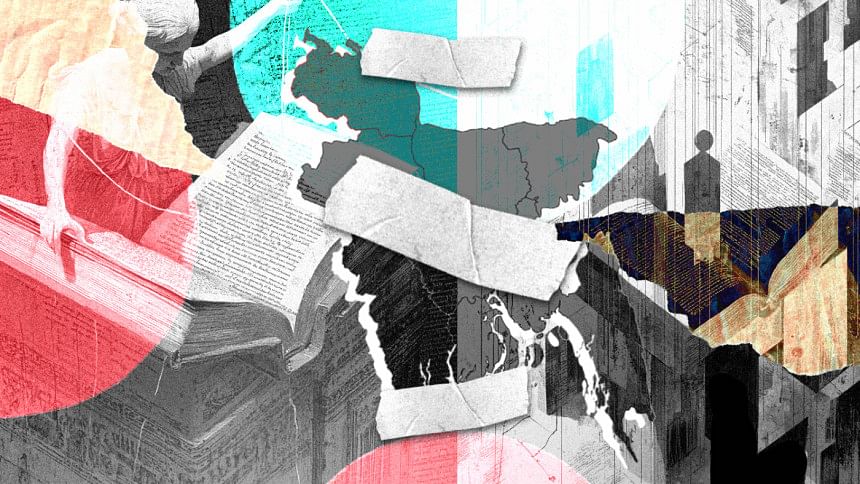
Let us ask an elusive question against the current political situation in Bangladesh: what creates a good nation? An ambitious constitution? Honest and accountable leaders? Effective policies? People themselves? We begin by discussing the idea of the constitution. You may not have noticed that you don't have to sign the constitution to pledge your allegiance to it or abide by it. The state assumes that you as a citizen are going to accept the constitution as a social contract and respect and follow it. In this assumption, the state imagines a nation with common beliefs and aspirations, and a shared interest in history, language, and culture. The constitution places a lot of trust in people to see, understand, and approve how it seeks to create a good nation with a common purpose. By championing a national mission, the constitution supposes that it can provide some consistency to people's public lives.
Yet, the idea of the constitution is tricky. It is a deeply idealistic instrument of the state in the sense that it is broadly based on people's collective trust and willingness to accept it as the nation's guiding principles. When that trust is not there, the constitution is fragile, becoming merely a book that catches dust on the shelf of a dimly lit office. Furthermore, as legal scholars have argued, the constitution presents a larger moral quandary. Even if it is ratified by the national assembly, it may not be just. It may only reflect the aims and machinations of an exclusive power-wielding group. When the US constitution was ratified in 1788, enslaved people in the country were considered three-fifths of a person and women didn't have the right to vote. The point is that a ratified constitution may not guarantee a fair society. To add to the complexity, there are nations—such as the UK, Canada, Saudi Arabia, and Israel—that do not have a single or full written constitution, rather various laws, conventions, principles, and judicial decisions.
Despite the inherent limitations in the ways the constitution is conceived, the image, purpose, and identity of a nation that it seeks to articulate are essential for the nation to function as a unit. But the problem is this: for people to collectively believe in the constitution as a social contract, there must be broad agreement on some "fundamentals" that take shape organically from within society over a period. In an ideal world, the constitution has already embodied these fundamentals to flesh out the details. Only when the public accepts the fundamentals wholeheartedly does the constitution begin to make sense. But what may the fundamentals be? They may include: i) that all people—irrespective of their race, gender, ethnicity, and religion—are equal before the law; ii) peaceful coexistence even while in disagreement; iii) free and fair election as the basis of democratic governance; iv) a tyranny-proof system of checks and balances in power; v) respect for the natural environment; vi) independent institutions; and vii) some historical happenings that galvanised the nation in the first place.
In the absence of public trust in the fundamentals, the constitution does not and cannot make good sense. On January 6, 2021, the US constitution became dangerously brittle until then Vice-President Mike Pence certified the 2020 US presidential election results. The constitution is not—has never been—enough to create a good nation. Let me make two crucial points here. First, what is most important in creating a good nation is a reasonable and civil historical process, powered by inclusive institutions, that produces reasonable people with the prudence to value some fundamentals as the cement of their national formation. Second, fundamentals are not God-given, and what is needed is a dynamic and quality public debate about their significance in building a good nation. In other words, a reasonable nation must know how to debate what is in their best collective interest.
A good nation is, of course, a utopian aspiration or even a myth—perhaps a necessary myth with which to articulate an acceptable national purpose. One way or the other, a nation's polity, stability, and sense of justice often depend on how maturely it deploys its ideas of fundamentals in the project of nation-building.
The Greeks first understood this political riddle. At the precipice of a civil war, circa 600 BCE, raging between a landed aristocracy and the peasants who owed it vast debts, Athenian legislator Solon came up with the idea of eunomia, an ideal political order that served the interests of all feuding parties. In addition to creating the social framework for a sound distributive justice, eunomia outlined, most importantly, how things should be in an ideal society. In other words, Solon created some fundamentals that brought people together, enabling them not only to transcend their narrow selfish interests, but also to believe in the virtues of citizenship and democracy.
With this long preamble, allow me to turn to current Bangladesh. The country's political class, unfortunately, has not been able to resolve its eunomia challenge. It did not convincingly determine what its historical fundamentals are or could be that would remain above fractious political bickering in the years to come.
The political project of what is known in Bangla as oikyomot has remained forever elusive. If oikyomot points to figuring out the nation's fundamentals, then it is, of course, not about the end product in the form of untouchable "truths," but rather about a continuous process of civil discourse with which to reason why some foundational ideas are necessary as a continuous political thread. Consider this example: by the time he was in his second term of presidency, George Washington endured vicious press attacks, questioning his integrity and his administration's "monarchical" style. But nobody ever set Mount Vernon, Washington's personal property, on fire. Today, people can write a scathing book on Washington's treatment of enslaved people in his estate, but nobody burns down the Washington Monument rising from the centre of the US capital. There is no historical dilemma in considering George Washington's pivotal role in the Constitutional Convention in 1787, a historical fundamental in the idea of the United States of America. Bangabandhu Sheikh Mujibur Rahman's March 7 speech is one such fundamental in the idea of Bangladesh. The achievement of 1971 is a foundational concept for this country. The whole point of the planned killing of the country's intellectuals by anti-liberation forces on December 14, 1971 was to defeat that concept. Ironically, the last regime's over-Mujibification of the country's political landscape spawned the wrong kind of debates on 1971.
While fundamentals can be debated across historical eras, they should be neither dismissed nor desacralised in the name of renewal or with the intention of political erasure. The problem in Bangladesh has been that political parties created their own "party fundamentals" that collapsed or were erased with their departure from the government. They weaponised history in their favour. While one party colonised 1971 as its exclusive turf, others showed a peculiar discomfort towards it (even when indulging in its sartorial celebration) or secretly denied its legitimacy. Thus, Bangladesh's political history has been a history of biased histories that created permanent political fault lines, weakening the promise of developing the nation's human capital. One cannot expect a mature nation when a misguided culture thrives, one in which people become accustomed to seeing the world from the lens of their narrow self-interests, ignoring the transcendental values of fundamentals in nation-building.
An insurmountable roadblock in Bangladesh has long diminished the possibility of establishing fundamentals as national unifiers. Since independence, the country has carried on with a peculiar birth defect, that is, the secret guilt-ridden binary of 1971 and religion. Despite the euphoria of liberation, in post-independence Bangladesh, many people, beyond the Islamist parties, secretly considered the secession from Pakistan a betrayal of Islam. Even though false—the Liberation War was fought against economic and political marginalisation—this binary continued to influence politics in Bangladesh with different artifices and under different circumstances. In many ways, August 15, 1975, the debate of Bangalee vs Bangladeshi, and partisan debates on secularism, among other examples, are different manifestations of this false binary, which seems to have become entrenched in the national psyche. It has become a culture even though its expression in recent times has become shrouded in mystical and indeterminate pronouncements.
Binaries that entrap us in a black-and-white belief system harm our social and cognitive evolution. What I propose is that some foundational concepts are necessary to anchor a good nation and its ability to live a richly hybrid life. More importantly, to be able to believe in unifying fundamentals, a nation needs maturity, courage, and a willingness to debate its purpose with civility. For that, we need to robustly invest in public education, civic programmes, and social campaigns.
Dr Adnan Zillur Morshed is an academic and a public thinker.
Views expressed in this article are the author's own.
Follow The Daily Star Opinion on Facebook for the latest opinions, commentaries and analyses by experts and professionals. To contribute your article or letter to The Daily Star Opinion, see our guidelines for submission.
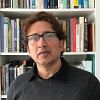

 For all latest news, follow The Daily Star's Google News channel.
For all latest news, follow The Daily Star's Google News channel. 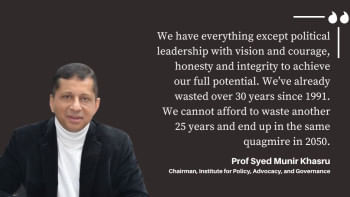




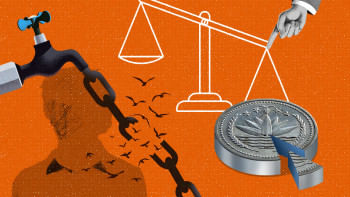




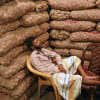




Comments